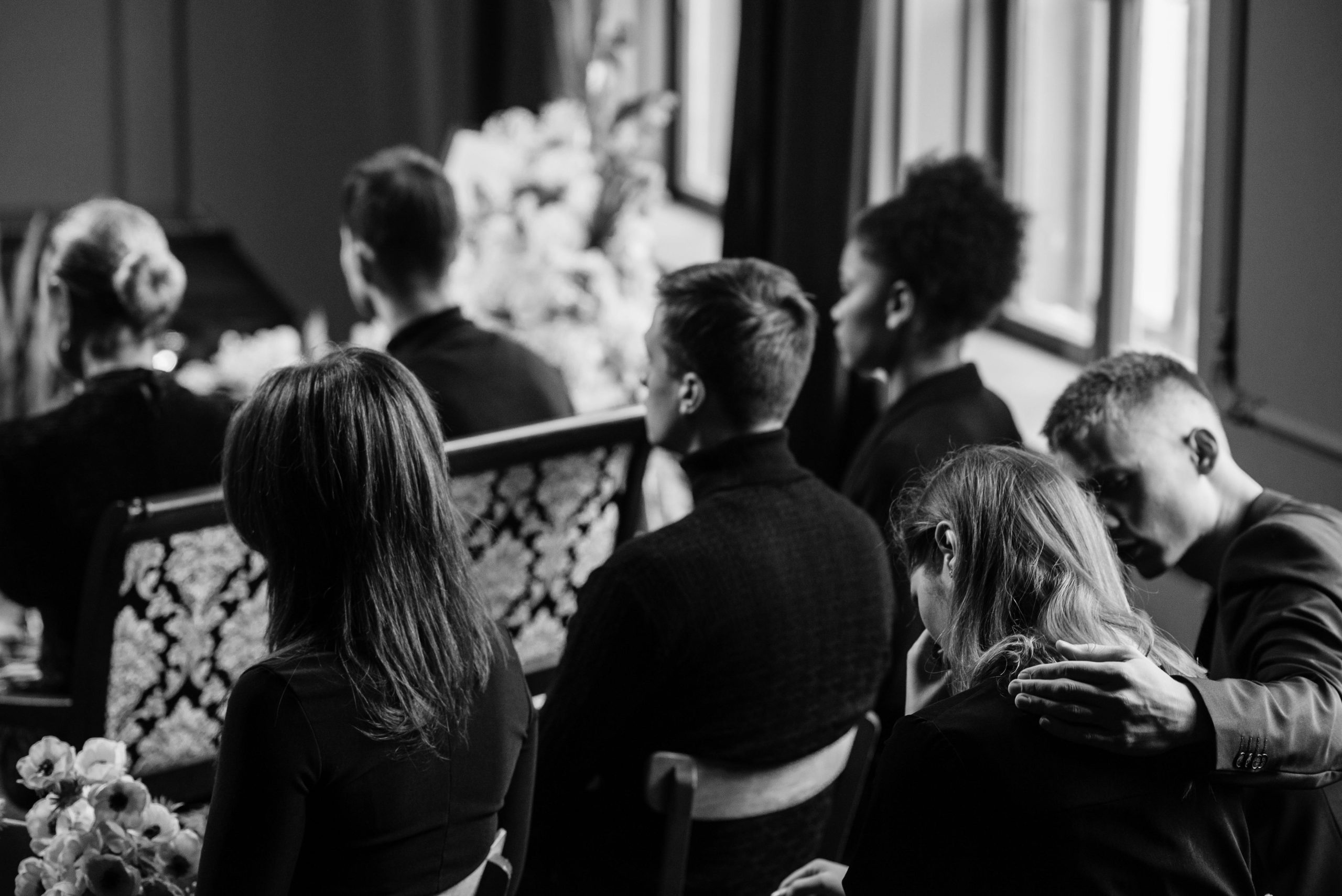You are going to die. Often, we imagine those words being said to us in a doctor’s office, or perhaps shouted before an epic battle scene in a movie. But in our daily lives, the prospect of our eventual death is a reality we seek to avoid. We move through life as if it will never end, as if we are indestructible. Any reminder of our own mortality is feared, avoided, or ignored.
When we encounter death – a family member, a public figure, a stranger – it can stir something deep within us. For all our experience and advancement and knowledge, death isn’t easy to understand, and even more difficult to process. Our thoughts and feelings range from the raw to the reactive to the rational. And we are compelled to put into words who this person was, how they affected us, and what their death means. It’s a complicated minefield to navigate.
There are typically two times in our lives in which people tend to pay extra attention to us: our wedding and our funeral. And while we will only be present for one, it’s worth taking a look at the one we’ll likely miss.
The Competing Narratives of Your Life
The musical Hamilton concludes with a meditation on how we are remembered: “who lives, who dies, who tells your story”.
When each of us dies, there will be some sort of response. And undoubtedly, there will be competing narratives, from some combination of the following:
- People who know us deeply
- People who only know of us
- People who love us
- People who hate us
- People who are indifferent
Some will focus on our strengths and positive qualities, ways in which we’ve made a positive influence in their lives and the greater world. They may have experienced us at our best, and will interpret our lives in the warmest possible way, likely far better than we deserve. Others will bring up our follies, words, and actions that caused them harm or distress. They may have experienced the worst of us, will interpret us through the dimmest lens possible.
And because the world is wide, most people will fall into that last category and take no notice. If they do hear of our death, it will register with little impact. If we were to stop and reflect on every single person who died, we’d never have time for anything else.
No matter how you live your life, people will respond to your death differently. (Every sinner has their advocates, and every saint has their naysayers). And yet, each of us hopes to make a mark on this world. We want to matter. We want to be missed. And we want to leave a unique legacy that lasts beyond our last breath.
Is any of that in our control?
Choosing and Living Your Legacy
Roman emperor and philosopher Marcus Aurelius offers a simple yet bold posture for those of us willing to keep it real in the face of our own mortality. “Act, speak, and think like a man ready to depart this life in the next breath.”
With that in mind, join us in the following exercise:
- Imagine there are four speakers at your funeral. What would you want each of them to say?
- If you died today, what would they actually say?
- What needs to shift in your actions, attitude, and priorities to realize each eulogy?
You’re not alone in feeling the tension of where you are versus where you want to be. And to be clear, we’re not looking to manipulate others into saying nice things about us. Rather, when we have a bold vision of the legacy we’d like to leave, we have a clear target at which to aim.
You may not control the narrative, but you can decide each day to live a story others will want to tell.


